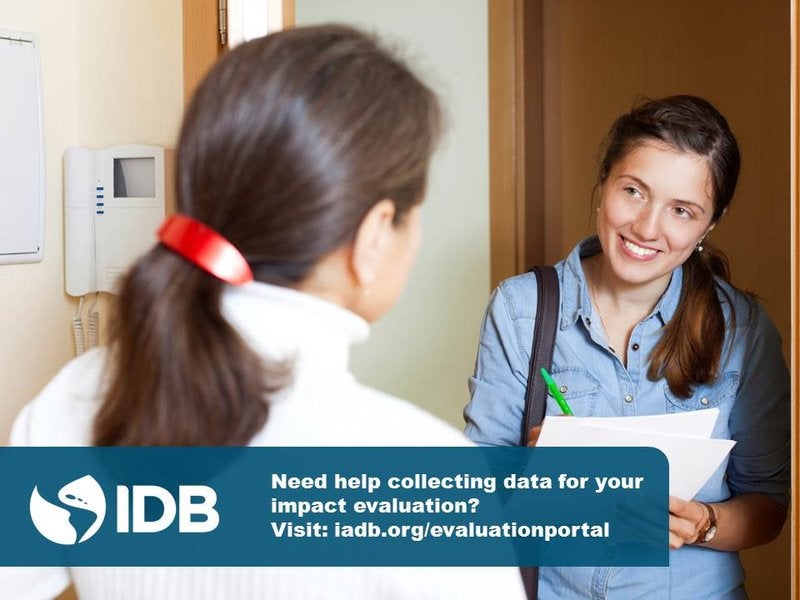By Gastón Gertner*
Data are to impact evaluation what raw materials are to a production process. At the Office of Strategic Planning and Development Effectiveness (SPD) we encourage teams working in impact evaluations to implement best-practices in their data collection efforts to ensure high-quality evaluations. Many impact evaluations use data collected through the use of surveys. As you can imagine, implementing surveys in the field, with hundreds or even thousands of observations is a complex task.
The IDB’s Impact Evaluation Hub provides tools and guidelines to successfully collect relevant and high-quality data. Through the data collection section, you can access sample questionnaires for households, communities, health facilities, schools, and farms. These generic questionnaires are accompanied with data entry platforms and training materials. And best of all, you can easily adapt and update all these materials for the needs of your particular survey.
Consent form: Obtaining informed consent from survey participants is a critical first step to ensuring the protection of participants in most standard survey contexts. You can download an example here.
Questionnaire: Best-practice questionnaires take into consideration the formatting and phrasing of questions and ways to organize information clearly and efficiently. These model questionnaires provide users with standard survey modules that have been successfully field tested. We encourage you to adapt and test these instruments for the specific context you are working on.
Data entry program: Survey teams require data entry platforms linked to the questionnaires that perform data consistency checks in accessible software. The programs available here can serve as a model for your own survey.
Fieldwork manuals: These manuals describe fieldwork organization (number of personnel, profiles, tasks), instructions for administering and using the questionnaire, undertaking data entry activities in the field, and data management tasks throughout the course of the evaluation.
The data collection section of the Evaluation Hub also provides users with information about protection of human subjects, data storage and management, and links to established survey initiatives such as the Demographic and Health Surveys (DHS) and the Living Standards Measurement Surveys (LSMS).
Explore the data section of the Evaluation Hub, and collect the best possible “raw material” for your impact evaluation!
*Gastón Gertner is a consultant at the Office of Strategic Planning and Development at the Inter-American Development Bank. During his career at IDB, Gastón has supported the design and implementation of impact evaluations and household surveys for different sectors, including social protection, human development and water and sanitation. He is currently working on impact evaluations of community-based nutrition and early childhood development programs and water and sanitation development projects in Latin America. Gastón obtained his Master’s in Public Affairs from Princeton University where he specialized in Development Studies.



Leave a Reply